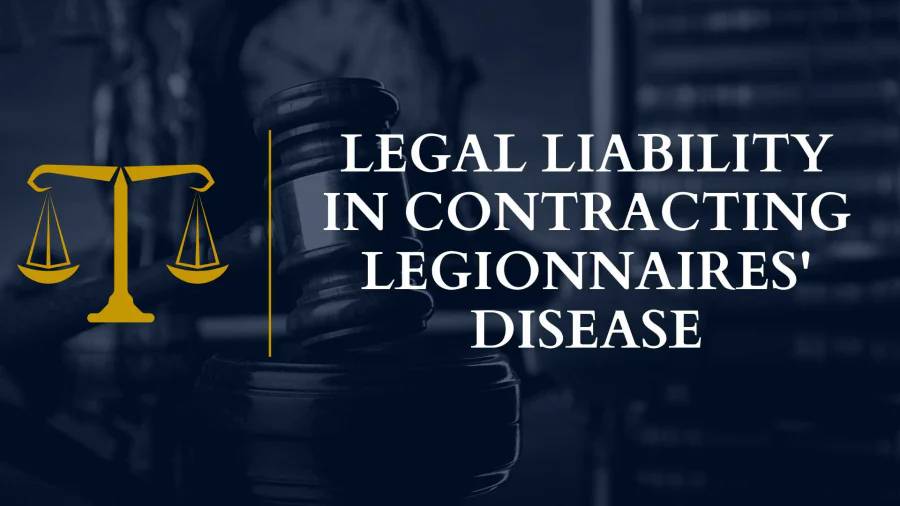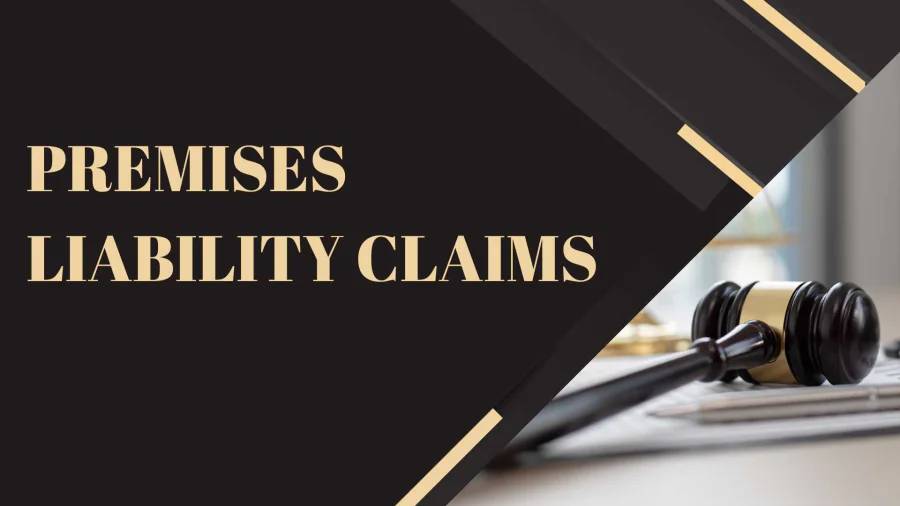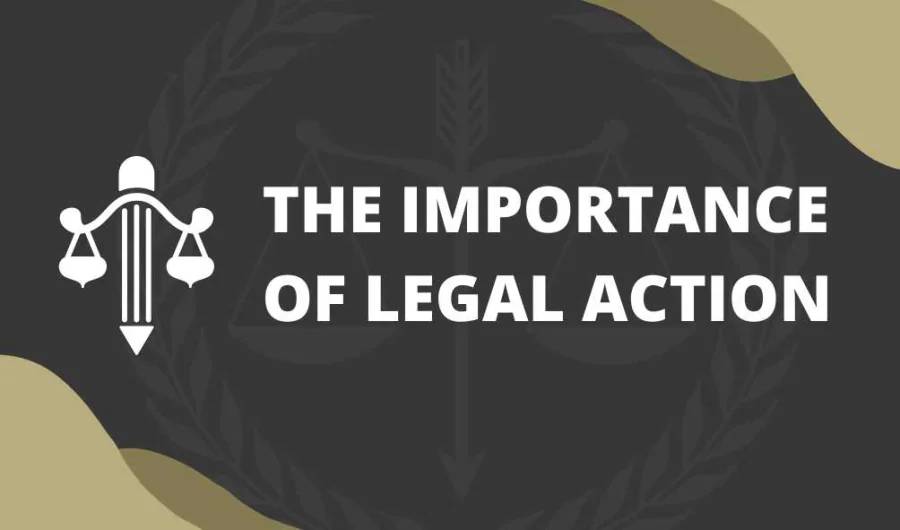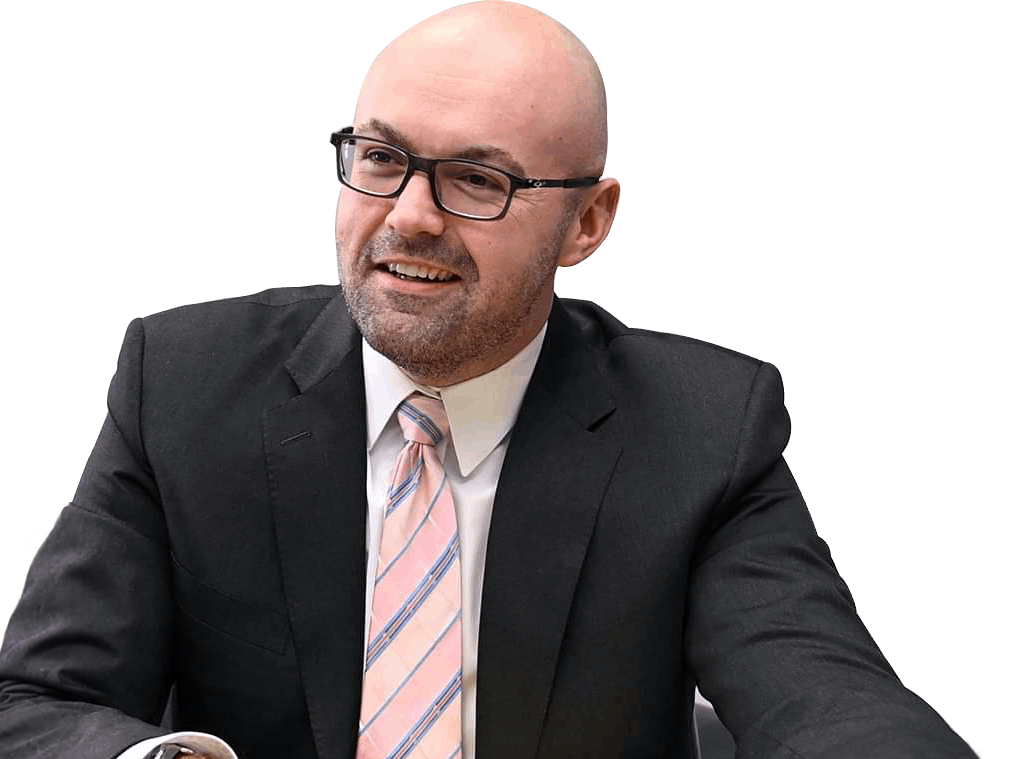Unseen Threats: Legionnaires’ Disease Exposed – Fight for Your Rights!

Legionnaires’ disease, a severe form of pneumonia, is caused by the Legionella bacteria. This disease first came into the public eye in 1976 following an outbreak at an American Legion convention in Philadelphia, marking a significant moment in public health and legal history. The disease is contracted by inhaling tiny droplets of water contaminated with the bacteria, commonly found in freshwater environments, but becomes a health concern when they grow in building water systems like cooling towers, hot tubs, and plumbing systems.
The symptoms of Legionnaires’ disease are akin to other forms of pneumonia and can include high fever, chills, cough, shortness of breath, muscle aches, and headaches. The severity of these symptoms can range from mild to life-threatening, especially in older adults, smokers, or individuals with weakened immune systems. Given its serious nature, understanding the legal aspects surrounding Legionnaires’ disease is crucial, especially for those who have contracted it due to negligence or poor management of water systems on someone else’s property.
The disease’s impact is not just physical but also legal. It raises questions about premises liability safety standards in public and private facilities. It is the responsibility of property owners and managers to ensure that they follow the mandated safety standards to avoid such outbreaks. As such, Legionnaires’ disease is a medical concern and a legal challenge, requiring a nuanced understanding of both health and law.
In this article, we’ll examine your options if you or someone in your family may have contracted the disease. We’ll explore how a premises liability case works and when to hire an attorney to file a personal injury claim.
Legal Liability in Contracting Legionnaires’ Disease

Determining legal liability for contracting Legionnaires’ disease in the United States involves navigating a complex landscape of premises liability and negligence law. The primary question revolves around who is responsible for maintaining safe environments free from Legionella bacteria. Property owners, employers, and operators of public facilities can be held liable if it is proven that their negligence led to the proliferation of the bacteria.
For instance, if a hotel guest contracts the disease from a contaminated hot tub on the premises, the hotel could be liable for not adequately maintaining or disinfecting their water systems. Similarly, if an employee contracts the disease from a contaminated air conditioning system in a workplace setting, the employer could be responsible for failing to ensure a safe working environment.
Legal liability also extends to manufacturers of cooling and plumbing equipment if it is found that defects in their products contributed to the spread of Legionella. Each scenario requires a thorough investigation to establish negligence and causation. In such cases, the burden of proof lies with the plaintiff, who must demonstrate that the defendant’s actions or inactions directly led to the contraction of the disease. For instance, if the property owner fails to maintain a safe environment, it is your job as the plaintiff or attorney’s job to prove this to the court.
This legal framework underscores the importance of property owners’ and managers’ adherence to health and safety regulations. It also highlights the need for vigilance in monitoring and maintaining water systems to prevent the growth and spread of Legionella bacteria. A detailed legal analysis is essential in an outbreak to determine liability and pursue justice for those affected.
Pursuing a Legal Case for Legionnaires’ Disease
If you suspect that you or a loved one contracted Legionnaires’ disease due to someone else’s negligence, it is crucial to seek legal assistance. The type of attorney best suited for handling such cases is one specializing in personal injury or wrongful death, particularly those with experience in environmental law and premises liability.
The legal process typically begins with the attorney conducting a detailed investigation to gather evidence. This may involve reviewing medical records, inspecting the contaminated site, and consulting with microbiology and environmental health experts. The goal is to establish a direct link between exposure to Legionella and the illness. This process is similar to other types of personal injury cases, such as slip and fall.
Once negligence is established, the attorney will guide the client through the legal proceedings, including negotiating settlements or pursuing a lawsuit. The compensation sought can cover medical expenses, lost wages, pain and suffering, and, in tragic cases, wrongful death.
The legal journey in Legionnaires’ disease cases can be complex and challenging for the injured party without professional help. It requires a deep understanding of the disease’s medical aspects and the legal principles governing negligence and liability. An experienced attorney will navigate these complexities, advocating for the client’s rights and seeking fair compensation.
Victims need to act promptly, as statutes of limitations can restrict the time frame within which a lawsuit can be filed. Additionally, gathering evidence can be more effective soon after contracting the disease. Legal representation in such cases is about seeking financial compensation and ensuring that similar incidents are prevented by holding negligent parties accountable.
Premises Liability Claims

Premises liability is a legal concept that holds property owners and managers responsible for injuries caused by hazardous conditions on their property. In the context of Legionnaires’ disease, this concept becomes particularly relevant. Legionella bacteria survive in the water and thrive in poorly maintained systems.
The disease is contracted by inhaling water droplets contaminated with Legionella bacteria, often in complex water systems like hotels, hospitals, or office buildings. When these systems are not properly maintained, they can become a breeding ground for these bacteria, leading to potential outbreaks of the disease.
In order for a premises liability claim to be successful in the context of Legionnaires’ disease, three key elements must be established:
- Existence of a Dangerous Condition: The claimant must demonstrate that a dangerous condition existed on the property. In the case of Legionnaires’ disease, this would involve proving the presence of Legionella bacteria in the property’s water system. In the case of Legionella bacterium, this requires expertise.
- Negligence of the Property Owner or Manager: It must be shown that the property owner or manager was negligent in maintaining a safe environment. This could involve failing to conduct regular inspections, not adhering to safety protocols, or ignoring known risks associated with Legionella bacteria. These risk factors need to be determined, and evidence gathered to be presented in the court of law.
- Direct Link to Injury: There must be a direct link between the negligence and the injury sustained. For Legionnaires’ disease, this means proving that the contraction of the disease was a direct result of exposure to the contaminated water source on the property.
The challenge in these cases often lies in proving that the property owner or manager was aware of the risk and failed to take appropriate action. This can involve complex investigations, including reviewing maintenance records, testing water systems, and consulting with experts in environmental health and microbiology.
In premises liability cases, the legal duty owed by the property owner can vary depending on the status of the injured person (invitee, licensee, or trespasser) and the state law. However, in most cases involving Legionnaires’ disease, the victims are likely to be invitees (such as hotel guests or hospital patients) to whom the highest duty of care is owed.
Given the complexities involved in such cases, individuals who believe they have contracted Legionnaires’ disease due to a property owner’s negligence should seek legal counsel. An experienced attorney can help navigate the intricacies of premises liability law and work towards securing just compensation for the harm suffered.
Hire An Experienced Premises Liability Lawyer
Legionnaires’ disease is often linked to negligence in maintaining building water systems. In such situations, a specialized premises liability lawyer becomes crucial. As attorneys, we are not just legal experts but also possess a unique blend of knowledge in both legal and medical realms, which is essential for handling these complex cases.
Firstly, we have an in-depth understanding of the laws and regulations governing property owners’ responsibilities. This legal expertise is vital in establishing the property owner’s negligence, a key element in Legionnaires’ disease cases. We have the experience to navigate the complexities of premises liability law, helping clients understand their rights while building a strong case.
Moreover, these cases hinge on detailed scientific and medical evidence. As experienced lawyers, we have established networks with medical experts and investigators. Plus, we understand the nuances of Legionnaires’ disease, including its development, spread, and the environmental conditions that facilitate its growth. This knowledge is crucial in proving that the exposure to the bacteria was due to the property owner’s failure to maintain safe conditions.
Additionally, as attorneys, we are skilled in dealing with insurance companies, which often play a significant role in premises liability cases. We are adept at negotiating settlements and, if necessary, taking the case to trial. Our ability to present complex scientific and medical information in a way understandable to a jury is a key aspect of the service we provide and helps clients win rightful compensation.
Furthermore, as lawyers, we are aware of the profound impact Legionnaires’ disease can have on victims and their families. We approach each case with a balance of professional rigor and empathetic understanding, ensuring that our client’s rights and needs are at the forefront of the legal strategy we adopt.
Conclusion: The Importance of Legal Action

Legionnaires’ disease, while preventable, remains a significant public health concern due to its potential severity and the complex environments in which Legionella bacteria can thrive. For those affected, understanding the legal implications is essential. Property owners, employers, and manufacturers are responsible for ensuring their water systems are safe and free from harmful bacteria.
Individuals who have contracted Legionnaires’ disease should seek legal counsel right away. An experienced attorney can provide guidance on the best course of action, help navigate the complexities of the legal system, and work towards securing rightful compensation for the harm suffered.
It’s not just about addressing immediate health concerns but also about holding accountable those whose negligence may have led to the illness. By taking legal action, victims seek justice for themselves and help enforce standards to prevent future outbreaks of this serious disease.
FAQs
Q. What is premises liability law?
A. Premises liability law refers to the legal principles holding property owners and occupiers responsible for accidents and injuries on their property. This area of law dictates that property owners must maintain a safe environment for visitors. If they fail to do so and someone is injured, the owner or occupier can be held legally responsible for the injuries sustained. This law covers a range of incidents, including slips and falls, inadequate maintenance, defective conditions, and insufficient security, among others. The specific obligations and standards can vary depending on the jurisdiction and the type of visitor (e.g., invitee, licensee, trespasser).
Q. How is a premises liability claim processed?
A. A premises liability claim typically follows these steps:
- Injury Occurs: The claim begins when someone is injured on another’s property due to unsafe conditions.
- Medical Attention: The injured party should seek immediate medical treatment. Medical records are crucial for documenting the injuries.
- Incident Documentation: The victim or their representative should document the incident, including taking photos of the hazard and collecting witness statements.
- Notify Property Owner: The property owner or manager should be informed about the incident. This notification can be necessary for legal purposes.
- Consultation with an Attorney: The injured party often consults a premises liability lawyer to evaluate the claim and guide the legal process.
- Investigation: The attorney investigates the claim, gathering evidence such as maintenance records, surveillance footage, and additional witness statements.
- Filing the Claim: The lawyer files a claim against the property owner’s insurance, detailing the incident, injuries, and requested compensation.
- Negotiation: There is usually a negotiation period between the injured party’s lawyer and the property owner’s insurance company. Most cases are settled here.
- Lawsuit: If a settlement isn’t reached, the attorney may file a lawsuit, initiating the litigation process.
- Discovery Phase: Both parties exchange evidence and information. Depositions and further investigations occur.
- Mediation or Trial: The case may go to mediation to try for a settlement. If unresolved, it proceeds to trial, where a judge or jury decides the outcome.
- Resolution: The case concludes with a settlement or a court verdict, resulting in compensation for the injured party if the claim is successful.

